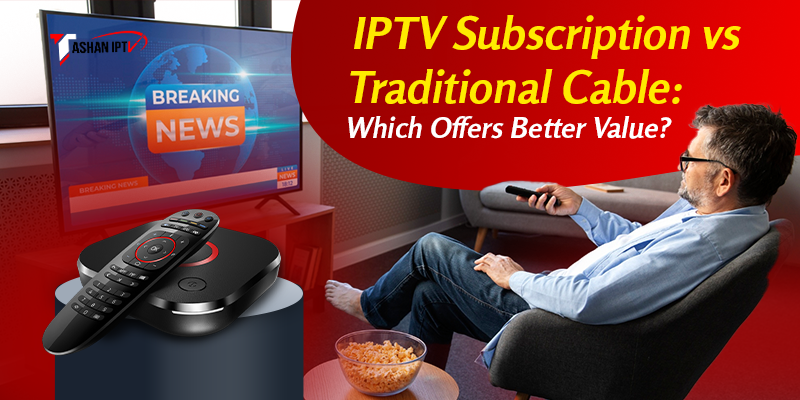24x7 Customer Support
24x7 Customer Support

In the field of entertainment, the primary question that emerges in the minds of people is which option provides beneficial value. IPTV subscriptions are known for their advanced features, flexible viewing options, and competitive pricing. While traditional cable TV packages are independent of internet availability. Let’s understand IPTV and cable TV networks in detail.
As technology progresses, all aspects of life progress as well. The entertainment sector is no exception to this technological evolution. Here, we will discuss the benefits of utilizing an IPTV set-top box compared to traditional cable television.
Well-Monitored Parental Control-
With the introduction of IPTV, it has become much simpler for parents to manage their children’s viewing habits.
Time-Shifted Watching-
The time-shifted viewing feature is incredibly beneficial. It allows users to save time. You can click on the desired range of the video streaming just by minimal left right scrolling.
Multi-Device Support—
The IPTV service is exceptionally compatible with various devices. Whether you have smartphones, tablets, laptops, and desktop computers, you can play your IPTV streams on every device.
There are following disadvantages of IPTV Network.
Complete Internet Dependency:
A dependable internet connection is crucial for IPTV. In its absence, you may encounter regular buffering or diminished video quality.
Non-consistent Quality:
The IPTV streaming quality is based on your internet speed. This compromised IPTV quality do hamper the overall user experience.
Restricted Availability in Some Regions:
The IPTV may or may not be accessible from every region. This lack of IPTV availability is particularly evident in remote areas.
Internet Dependability:
Cable television is a well-established means of viewing content, providing a reliable and steady signal, particularly in regions where internet access may be inconsistent.
Hassle free packages:
Cable companies frequently offer bundled services including internet, phone, and television, which consequently brings cost savings if you need all three options.
Independence from Internet:
In contrast to IPTV, cable television does not depend on an internet connection, eliminating concerns related to buffering or reduced speeds.
There are several drawbacks associated with utilizing a cable TV network for your entertainment requirements. Let us shed light on them in an informative manner.
Hefty Hardware Costs:
The cable network necessitates an initial investment that often burdens the customers financially. The cables, plugs, and adapters are gradually becoming outdated. The substantial length of thick cable wire itself poses a challenge to the cost-benefit ratio.
Labor-Intensive Maintenance Costs:
The coaxial wire employed in traditional cable TV is a multilayered wire. Once it sustains damage, repairing it becomes quite challenging.
Tedious to Set Up:
The installation process for cable is cumbersome and includes mounting cables on the roof and setting up a dish antenna on the terrace.
Gets Outdated easily:
Cable networks may become outdated more rapidly than IPTV set-top box. The IPTV set-top box is not going to be replaced in coming years. The internal architecture of the IPTV set-top box is universal.
you’re opting for IPTV or cable, the choice should fit your viewing habits and what matters most to you. If you desire more flexibility and less obligation, IPTV is likely your best bet. It’s a forward-looking investment in television. Take a little time today to look into your options and enjoy Tashan IPTV however you prefer.